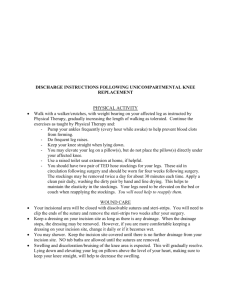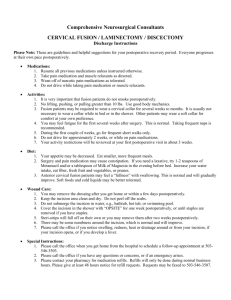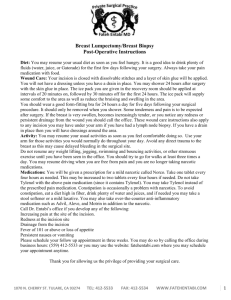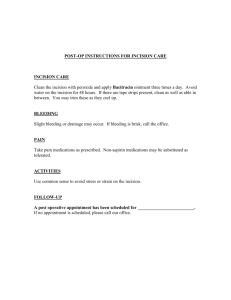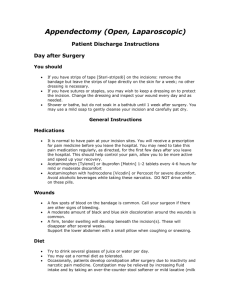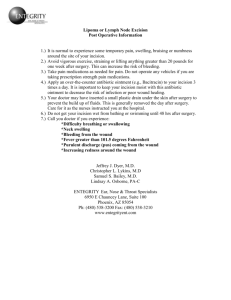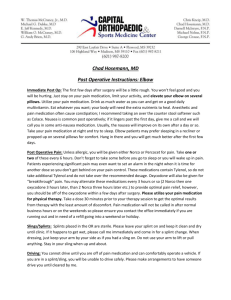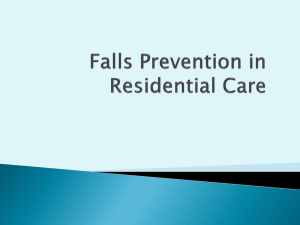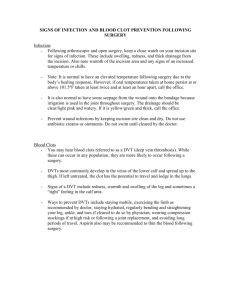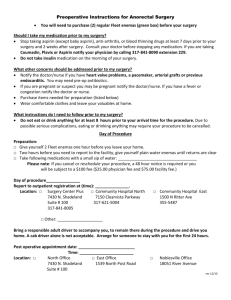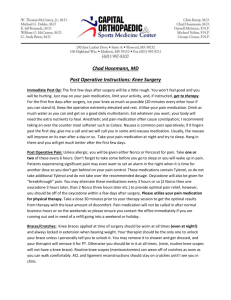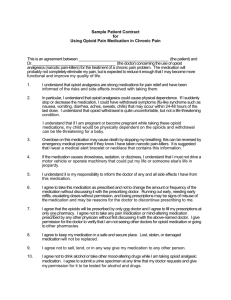Total Shoulder Surgery - Orthopaedic Associates of Michigan
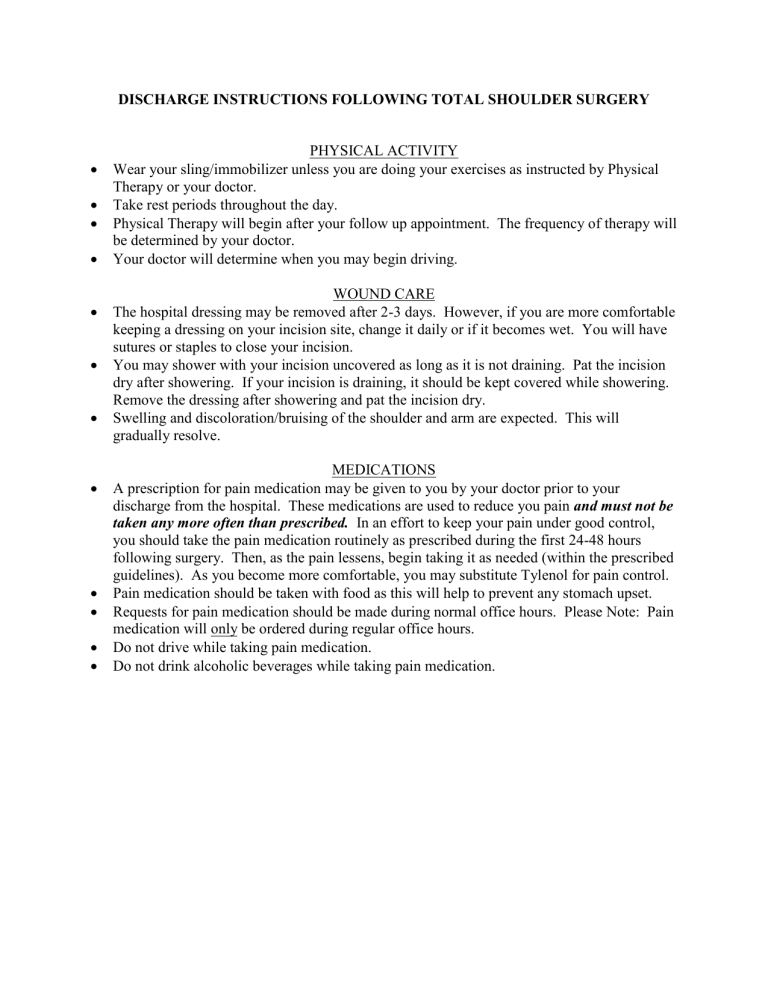
DISCHARGE INSTRUCTIONS FOLLOWING TOTAL SHOULDER SURGERY
PHYSICAL ACTIVITY
Wear your sling/immobilizer unless you are doing your exercises as instructed by Physical
Therapy or your doctor.
Take rest periods throughout the day.
Physical Therapy will begin after your follow up appointment. The frequency of therapy will be determined by your doctor.
Your doctor will determine when you may begin driving.
WOUND CARE
The hospital dressing may be removed after 2-3 days. However, if you are more comfortable keeping a dressing on your incision site, change it daily or if it becomes wet. You will have sutures or staples to close your incision.
You may shower with your incision uncovered as long as it is not draining. Pat the incision dry after showering. If your incision is draining, it should be kept covered while showering.
Remove the dressing after showering and pat the incision dry.
Swelling and discoloration/bruising of the shoulder and arm are expected. This will gradually resolve.
MEDICATIONS
A prescription for pain medication may be given to you by your doctor prior to your discharge from the hospital. These medications are used to reduce you pain and must not be taken any more often than prescribed.
In an effort to keep your pain under good control, you should take the pain medication routinely as prescribed during the first 24-48 hours following surgery. Then, as the pain lessens, begin taking it as needed (within the prescribed guidelines). As you become more comfortable, you may substitute Tylenol for pain control.
Pain medication should be taken with food as this will help to prevent any stomach upset.
Requests for pain medication should be made during normal office hours. Please Note: Pain medication will only be ordered during regular office hours.
Do not drive while taking pain medication.
Do not drink alcoholic beverages while taking pain medication.
Take one regular aspirin once a day for two weeks following surgery. This thins your blood and helps to prevent blood clots from forming.
DO NOT TAKE ASPIRIN if you have an allergy to aspirin, have a history of ulcer disease, or if another blood thinning medication, such as ibuprofen, was ordered for you when you were discharged from the hospital.
Take one 325mg iron tablet two times a day for two weeks after surgery. You may use “over the counter” iron preparations.
You may resume your routine medications unless otherwise instructed.
Often pain medication and inactivity cause constipation. Eat high fiber foods (fresh fruits, vegetables, bran) and increase your fluid intake if possible. Also, you may purchase
Pericolace, a stool softener, at any pharmacy to aid in alleviating your constipation. Take this two times per day.
OTHER INFORMATION
Be aware that your joint may trigger metal detection devices.
You will receive a card at your follow up visit that indicates that you have had a Total Joint
Replacement.
FUTURE DENTAL OR SURGICAL PROCEDURES
If you are going to have any dental work (including cleaning), any surgical or other invasive procedures done, notify you doctor/dentist that you have had a joint replacement. Your doctor/dentist will order an antibiotic for you prior to these procedures to prevent microorganisms from spreading to your new joint. IT IS IMPORTANT THAT YOU TAKE
THESE PRECAUTIONS FOR YOUR WHOLE LIFE. Your Total Joint Replacement Card lists procedures requiring pre-medication.
PRECAUTIONS
Notify the office if you:
Develop new or more severe pain that can not be controlled by the pain medication.
Develop redness, swelling, drainage, foul odor from your incision.
Develop calf pain or tenderness.
Have persistent numbness/tingling of the affected arm.
Develop a temperature greater than 100.5 that is not associated with any other illness. It is not necessary to take your temperature every day. If you feel warm, take your temperature.
Have any questions or problems.
FOLLOW UP
You should be seen in the office for a wound check 10-14 days following your surgery. Call the office when you are discharged from the hospital to schedule this appointment.
1/2009
